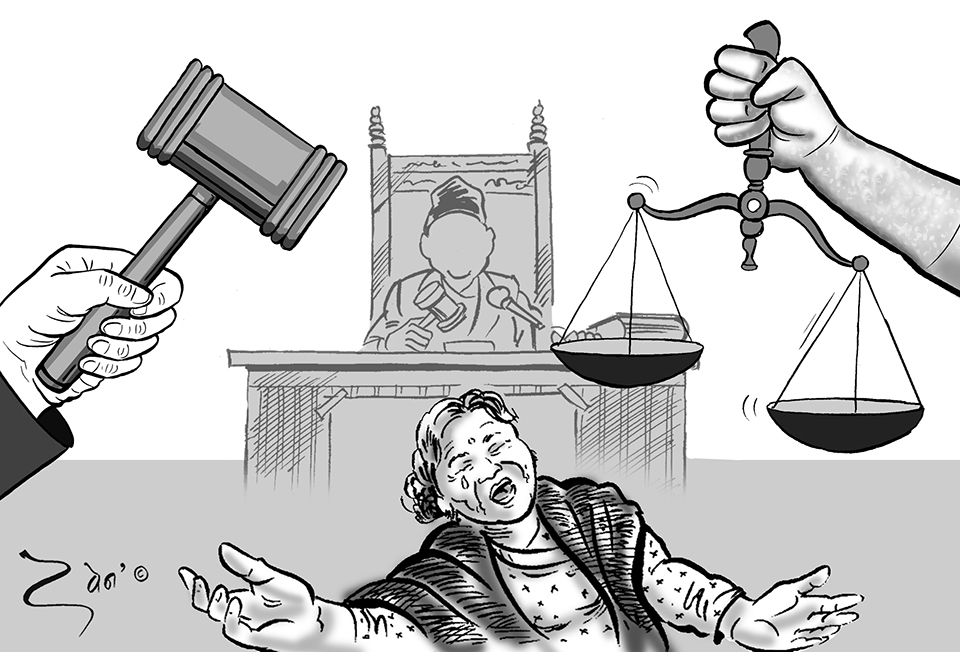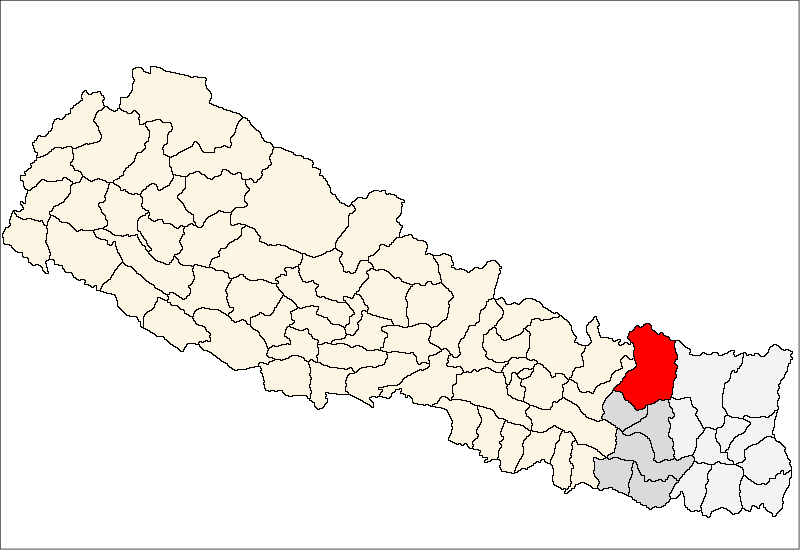
OR
Editorial
Conclude TJ process at the earliest
Published On: January 27, 2024 07:57 AM NPT By: Republica | @RepublicaNepal

It has been already 17 years since the government and the then rebel Maoists entered into the peace process with a pledge to provide transitional justice to the victims of the decade-long Maoist conflict. But transitional justice seems like a forgotten issue as the then rebel party currently heads the government. This has put the conflict victims in grave injustice as they are forced to wait indefinitely to get justice. They have already faced a long and arduous journey since the end of the armed conflict in 2006, striving to hold perpetrators accountable and receive reparations. The urgency to conclude this transitional justice process cannot be overstated, for any further delay not only risks tarnishing Nepal's reputation but also is an injustice to the conflict victims. As the government has recommended to President Ram Chandra Poudel to summon the meeting of the federal parliament on February 5, we urge the government to work towards endorsing the bills related to transitional justice and conclude the process to provide justice to the conflict victims at the earliest.
The TJ process is an essential avenue to address the atrocities, human rights violations, and scars that have haunted our society for years. Prime Minister Pushpa Kamal Dahal has shown a willingness to finalize the Transitional Justice Bill. The endorsement of the transitional justice bill by the parliamentary sub-committee earlier last year is a step in the right direction. There have also been inter-party negotiations recently on the issue of concluding the remaining issue of the peace process. However, we cannot afford to overlook the pressing need to promptly resolve the lingering issues and move this process forward. Conflict victims and human rights defenders have demanded amendment to the TJ Bill. The unresolved matters primarily pertain to defining human rights violations such as arbitrary and extra-judicial killings, and non-combat killings, and how to address those involved in and affected by the armed conflict. Additionally, concerns regarding sentence reduction and consent for reconciliation in cases of human rights violations need to be addressed. These issues require careful deliberation and consensus-building. The involvement of the main opposition party, CPN-UML, in advancing this legislation is pivotal. The cautious stance of the UML towards the TJ Bill necessitates open dialogue and negotiation to reach a mutually agreeable solution. The need for major political parties to work collectively and make necessary adjustments to the agreed-upon matters cannot be overstated. This collective effort is critical to ensuring that the transitional justice process aligns with the values of justice, truth, and reconciliation that our nation aspires to uphold.
As we urge the government to conclude the TJ process at the earliest, it is important for all major political parties to rise above partisan interests and prioritize the nation's interests. A successful resolution of the transitional justice process will not only bring relief to the victims and their families but also reinforce Nepal's stature in the international arena. Delaying this process further will only tarnish our image and raise doubts about our commitment to justice and human rights. The government's plan to introduce the TJ Bill in the upcoming session of federal parliament and the ongoing discussions among top leaders of major parties are commendable. The victims of the conflict and the international community are watching closely. Nepal must demonstrate its dedication to justice and ensure that the transitional justice process reaches its final stage of resolution promptly. We urge the government, political parties, and stakeholders to prioritize the resolution of the transitional justice process and work collaboratively to address the remaining concerns in the TJ bill.
You May Like This

Do Not Further Delay the Delivery of Transitional Justice
Nepal stands at a critical juncture in its pursuit of justice and reconciliation through the Transitional Justice (TJ) process. The... Read More...

Outreach Nepal lifts Nepal Ice AAN Futsal
KATHMANDU, May 13: Outreach Nepal has lifted the first ever Nepal Ice AAN Futsal Tournament 2018 defeating Media Basket by a... Read More...

SCOPE Nepal provides foil blankets to Nepal Army
KATHMANDU, Jan: SCOPE Nepal, an NGO working in peace, security, environment and social justice, handed over 378 emergency foil blankets to... Read More...




Just In
- NEA Provincial Office initiates contract termination process with six companies
- Nepal's ready-made garment exports soar to over 9 billion rupees
- Vote count update: UML candidate continues to maintain lead in Bajhang
- Govt to provide up to Rs 500,000 for building houses affected by natural calamities
- China announces implementation of free visa for Nepali citizens
- NEPSE gains 14.33 points, while daily turnover inclines to Rs 2.68 billion
- Tourists suffer after flight disruption due to adverse weather in Solukhumbu district
- Vote count update: NC maintains lead in Ilam-2














Leave A Comment